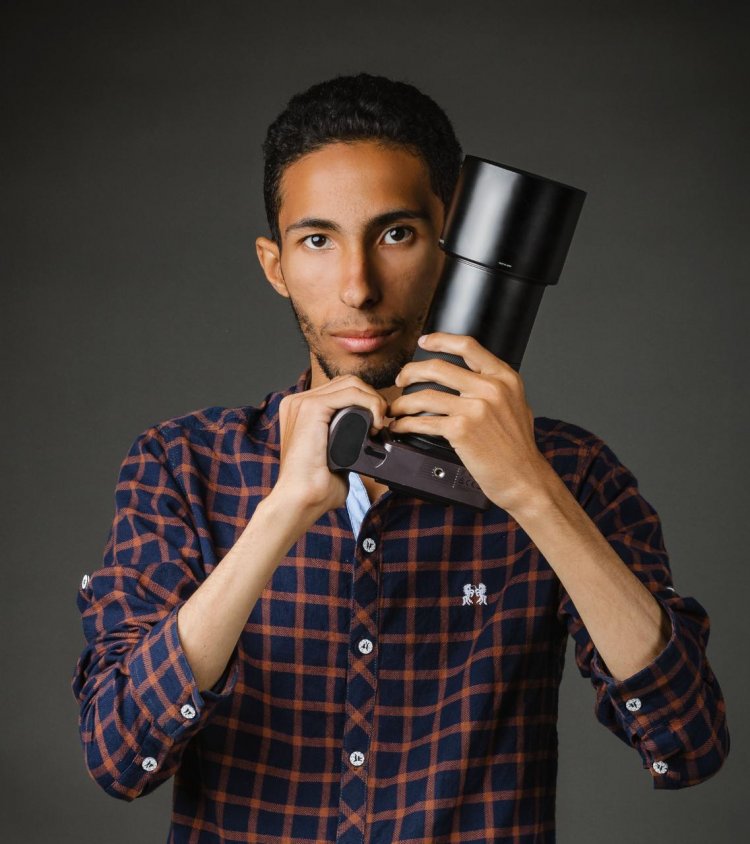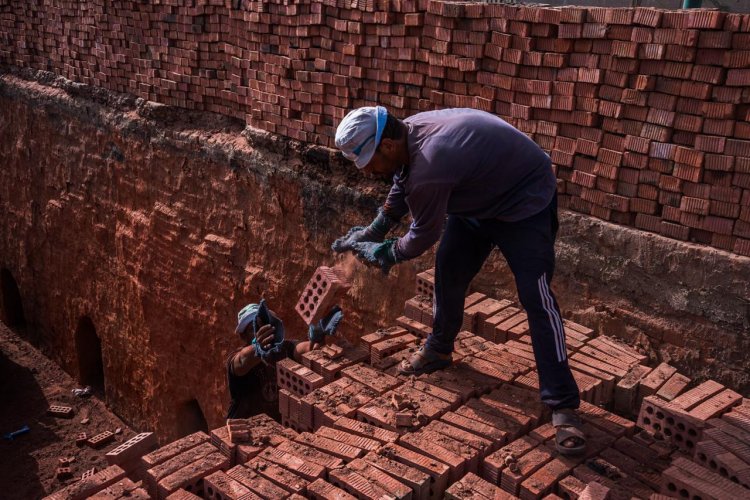From Journeys to Frames: Ahmed Emad, the Traveler Turned Photographer.

Driven by a passion for travel and a desire to capture the world's hidden beauty, Ahmed Emad embarked on a journey in 2010 that transformed his lens into a window to breathtaking landscapes. With a single camera and an unwavering vision, he set out to show the world what only the eyes of a true adventurer could see.
In this exclusive interview, we delve into Ahmed's inspiring journey, uncovering the key moments and personal stories that sparked his passion for photography. We’ll explore how he adapts to the evolving photography landscape, staying ahead with industry collaborations and a sharp eye for creative inspiration.
From day one, Ahmed knew exactly what he wanted. His journey began when he chose the Tourism Guidance Department in college, driven by his love for travel. Soon after, he decided to share the beautiful places he discovered with the world. He managed to combine his passion with his work by saving up from his college jobs, with some help from his family, to buy a camera. This marked the start of his photography career, and he quickly gained recognition for his talent. His travels increased, and he joined a community of professional photographers. He saved up again to buy a professional camera and focused more on capturing his travel experiences.
In 2019, Ahmed made a bold decision to leave his job in the tourism industry and fully pursue his passion, especially after achieving a major milestone—being selected as a photographer for UNICEF Egypt. Out of over 10,000 applicants, only five were chosen, and Ahmed was one of them. This accomplishment was a huge motivation for him to continue following his passion.
When we asked him what continues to motivate you, he answered "I feel joyful when I see my photos printed or published, or when a story I've captured has truly made a difference in the real world" which leads us to his projects with UNICEF Egypt.
His work with UNICEF Egypt has truly made an impact, especially through projects focused on development and refugee support in Egypt, such as the polio vaccination at borders, the initiative uniting Egypt, Syria, and Sudan under one roof, skills development for everyone, and providing clean water access to communities.
As an ambassador for the Ministry of Tourism, some of his most significant projects include the "Discover Egypt" initiative and the development of the website for "Experience Egypt."
Ahmed talks about how his work with UNICEF Egypt has impacted him: "My experience working with UNICEF Egypt has greatly influenced my photography. I now see photography from variable perspectives and view travel in a new light, especially after interacting with refugees—people who have lost their families, homes, and lives, and suddenly found themselves in a whole new place. This profoundly affects the person behind the camera, as capturing the life of someone who has gone through all of that needs to be impactful, telling their story through a carefully chosen angle."
Your photos are known for their uniqueness and professionalism. Can you describe your photographic style and the techniques you use to achieve such distinctive shots?
"If I'm photographing a story, I like to spend time with the person I'm going to photograph and befriend them. I remember once I talked to a person for three hours before taking any pictures, because any photo always tells a story. You can't capture what's inside someone without talking to them and make them feel like you've became friends. The second thing I love to do is to plan the shot. For one photo, I spend three months planning everything, from the timing and location to the type of lenses I would use. Sometimes, I would visit the location multiple times, but the timing wouldn't be right. Planning is always the best way to get the perfect shot."
What kind of equipment and software do you prefer to use in your work, and why?
"The equipment doesn't take the photo; it has a direct role, but it doesn't make the biggest impact on the picture. What's more important is knowing what you're doing to capture a good shot. But for me, I prefer Sony and use software like Lightroom and Photoshop, but that's not the standard. Someone can take great photos with a smartphone because the gear isn't the main factor."
Can you share a particular project or photograph that was especially challenging and how you managed to capture it successfully?
"In a photography project I worked on, the focus was on the hands that build Egypt. The challenge was to capture images that were highly impactful while also trying to help them and amplify their voices in the hope of bringing about change."

What have been some of the most rewarding moments in your career as a photographer?
"In 2016, when I started gaining recognition as a skilled photographer, I submitted a photo to an Egyptian exhibition. The judges criticized the colors and I didn't win. However, I believed in my photo and my skills, so I entered it into an international competition. To my surprise, I won first place globally and in Africa. Interestingly, the same Egyptian judges were impressed by the photo after it won the award. If I had believed their initial critique, I might not have entered the competition. My advice to anyone is: as long as you believe in yourself and your skills, don't let discouraging opinions, even from experts, hold you back."
How do you think photography can contribute to raising awareness about social and cultural issues, especially in your work with UNICEF and the Ministry of Tourism and Antiquities?
"Photography has a huge impact on tourism because people often visit places they see in pictures. I remember in 2017, no one was visiting Siwa until photographers started capturing it, and then people began to visit. The key is to make sure the photo is authentic and doesn't have edits that alter the reality of the place.
As for my work with UNICEF Egypt, I always feel the difference, especially in projects that involve development or direct interaction with refugees. It’s incredible how your shot can potentially change someone’s life."
©️UNICEF/Egypt 2023/Ahmed Emad
Can you share a memorable story or experience from your travels and assignments that left a lasting impression on you?
"One of the experiences I can never forget is my love for photographing documentary subjects. There was a Sufi festival held in the south of Marsa Alam during the summer, about 15 hours from Cairo. The challenge was getting there during fasting while it’s a 45-degree heat, to the point where the cameras were shutting down from the heat and there was no electricity. The second challenge was capturing everything before the batteries died, so time was very limited. The biggest challenge, though, was convincing the people to let us be among them and photograph them."
How do you stay inspired and continuously improve your craft in the ever-evolving field of photography?
"For me, whenever I photograph something different or travel to a place I haven't been before, I start creating a story apart from my work. I always follow photographers' accounts and keep up with the latest techniques and cameras."
Is there anything else you would like to share with us about your journey, your work, or your vision for the future of photography?
"My advice to anyone is to always believe in yourself, no matter the setbacks. Stay confident that you'll achieve your goal, and with patience, effort, and hard work, you'll get there. Nothing comes easy—you have to study, learn, make mistakes, face losses, and get back up to keep going. Especially in the field of art, always trust that you're talented and don't let anyone discourage you."












